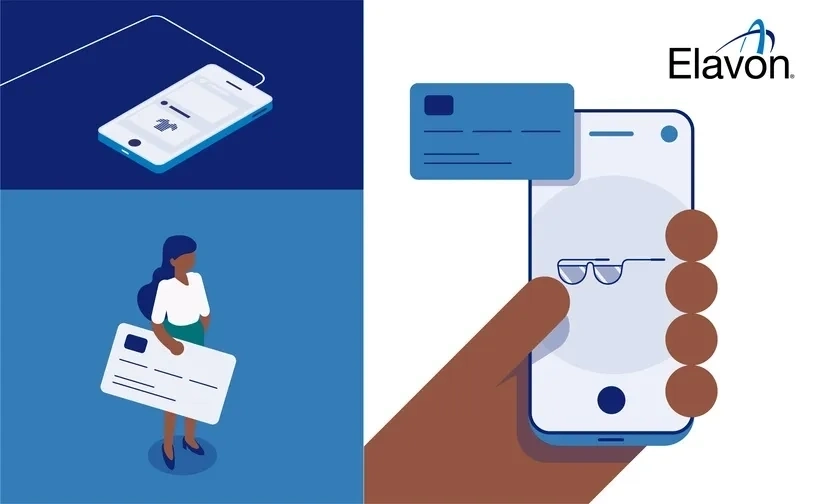.webp)
“If your business is not selling on social media, you’re missing out. That’s the pressure many business owners feel but is that fair or even accurate?” asks James King, Head of Ecommerce Consultancy at Elavon Europe.
To help answer that, in an online survey with Ipsos, we asked 1108 people aged 16 to 75 across the UK about how much they spent on the last impulse purchase they personally made (if they ever have) through social media.
Almost half (46%) of adults in the UK say they’ve not personally made an impulse purchase through social media. When it comes to the ages making up that figure, the smallest group are those aged 16-25 (5%). Proportions increase with age, with almost half (49%) being 55–75-year-olds, saying they’ve never personally made an impulse purchase through social media.
“No surprise, really,” says James. “There’s still a lot of suspicion about buying and selling through social media, whether you’re a consumer or business owner.
“Given how relatively recent retail on social media still is, there are some generations for which it’s been around their entire life or most of it, compared to those who have lived their lives quite happily up to now without it – and may well continue to.
“But take note: while your core audience may have significant proportions of reluctance to buy through social media right now, in time, those who are comfortable buying through social media may make up the entire market.”
What amount are people spending on an impulse purchase through social media?
Of those who have personally made an impulse purchase through social media, while more than a third (34%) spent up to £19 on their last purchase, while the largest proportion – two in five (40%) – spent between £20 and £49.
While higher amounts were trailing, there clearly are some (4%) who spent £200, or more, on their last social media impulse purchase.
“In a nutshell, this tells us that impulse purchases through these platforms aren’t limited to the cheapest items,” says James. “So, if this level of spending included non-essential items, imagine then if your business is selling necessities - it could be a very good indicator for potential.”
Gen Z are those born between 1997 and 2021, usually. However, as the youngest respondents in our survey are aged 16, our Gen Zs are a slightly reduced representation of that entire generation. Yet, still, Gen Z makes up the second highest proportion (28%) who made their last impulse purchase through social media in the apparent ‘sweet spot’ price range of £20-£49.
However, it’s Gen Y, born between 1981 and 1996, accounting for the largest proportion at almost two fifths (39%).
Perhaps, predictably, the comfort levels in this spending bracket seemingly declined as our respondents’ age bracket increases from youngest to oldest. Baby Boomers (born 1946-1964) were the smallest generation, proportionally, representing just over one in 10 (11%) of this spending bracket.
What does this mean for your business and selling through social media?
“Are you giving the right message… to the right people… in the right place for your business?” asks James. “If your target market relies strongly on impulse purchases, then knowing your customers’ age and your price point is crucial in deciding how suitable social media is for you to sell through.
“As a retailer, it can feel overwhelming, complex and risky, leaving you wondering if it makes good business sense at all. But - if you know your audience - we know the industry and can make it simple,” says James. “Whether you already have a website and gateway, or you’re finding your feet with those too, we have access to thousands of partners. So, you can benefit from the best and latest solutions with us bringing everything together through one point of contact.”
Talk to us to find out how ecommerce could work for your business.
We commissioned this same survey in other countries too, which may interest you:
We posed the same questions to 1000 adults in Ireland and 1098 adults in Poland.
The research was conducted on behalf of Elavon on the i:omnibus, Ipsos’ online Omnibus.
- Online interviews were carried out amongst a quota sample of adults aged 16-75 in the UK.
- Our total respondents base includes 1,108 adults who completed the survey November 10-12, 2021, and a sub-base of 618 who have personally made an impulse purchase through social media, 490 who have not previously made an impulse purchase through social media, and 251 who spent £20-£49 on their last, personally made, impulse purchase through social media.
- The sample obtained is representative of this population, having met quotas on: age, gender, region and working status.
- The data has been weighted to the known population profile by age within gender, region, working status and social grade to a nationally representative profile of this audience.


.webp)
.webp)







